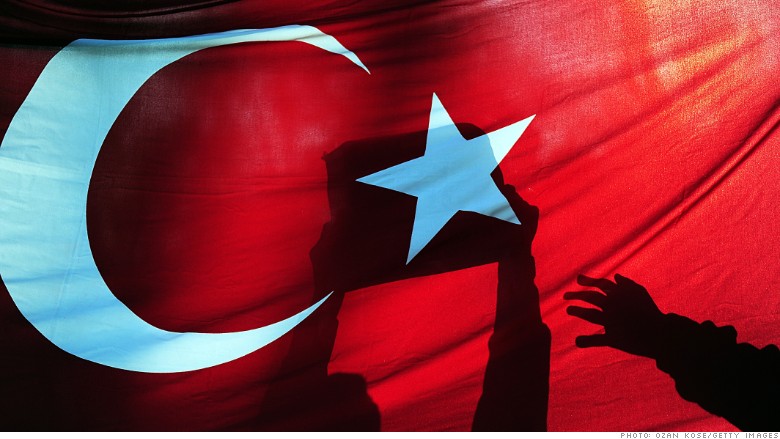
Facebook, following court orders in Turkey, has blocked pages depicting the Muslim religious figure Mohammed, according to national news reports there.
At the request of a state prosecutor, a Turkish judge on Sunday gave Facebook a choice: Either block the pages or have the entire social media service banned from Turkey.
Facebook complied with the court order, according to TRT, a Turkish government-funded news service.
Facebook (FB) did not immediately respond to questions from CNNMoney.
This is yet another case of the tough battle American companies face with government censorship. There's less attention given to government-enforced Facebook censorship than Google, but it does happen -- a lot.
Facebook keeps a running record on its public "Government Requests Report" website.
According to those disclosures, Facebook blocked 1,893 "pieces of content" that violate Turkey's strict Internet laws in the first half of 2014 alone. It also gave up information on just over half of the 249 accounts sought after by Turkish investigators.
By comparison, Facebook blocked 4,960 "pieces of content" in India, 29 in Russia, nine in the United Kingdom and none in the United States.
Until an epic fight between Google and China in 2010, Google (GOOG) in China blocked results pointing to information about the Tiananmen Square protests of 1989 and websites supporting Tibet independence and the Falun Gong religious group. Google stopped censoring and now China occasionally blocks Google.


